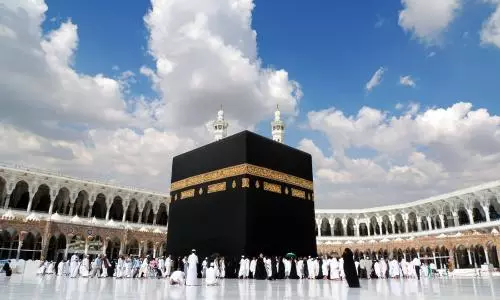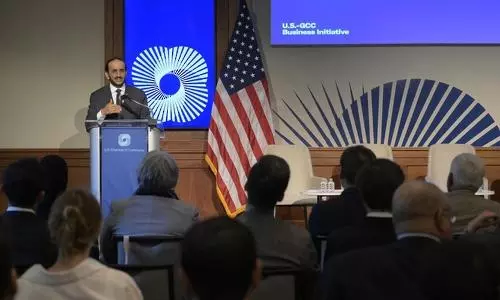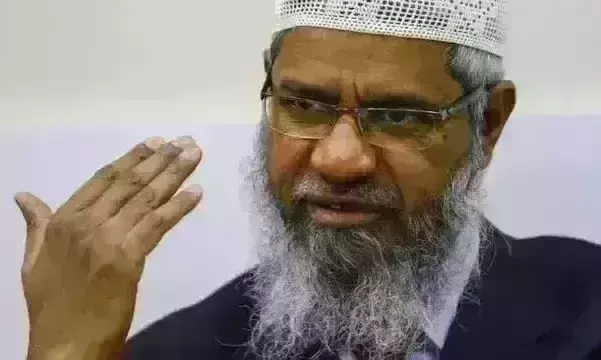
UAPA Tribunal issues notice to Zakir Naik's IRF in proceedings for extending the outfit's ban
text_fieldsIslamic preacher Zakir Naik
New Delhi: A Tribunal under the Unlawful Activities (Prevention) Act (UAPA) on Monday sought the stand of Zakir Naik's Islamic Research Foundation (IRF) in proceedings to consider the Union government's decision to declare it as an unlawful association.
The one-member Unlawful Activities (Prevention) Tribunal, comprising Delhi High Court Chief Justice D N Patel, issued a notice to IRF in the proceedings after hearing Solicitor General Tushar Mehta who represented the Union government. The tribunal has sought a response from the organisation by December 28.
On November 15, the Union government had declared IRF as an unlawful association for five years, saying that it has been indulging in activities that are prejudicial to the security of the country and have the potential of disturbing the peace and communal harmony and disrupting the secular fabric of the country.
Pursuant to section 5(1) of the Unlawful Activities (Prevention) Act, 1967, the Union government had, on December 13, constituted a tribunal headed by Justice Patel to adjudicate whether there is sufficient cause for banning IRF, founded by the Islamic preacher Naik.
The Ministry of Home Affairs' notification dated December 13 read: "The Central Government hereby constitutes an Unlawful Activities (Prevention) Tribunal consisting of Justice D.N. Patel, Chief Justice of High Court of Delhi, for the purpose of adjudicating whether or not there is sufficient cause for declaring the Islamic Research Foundation as an unlawful association."
The government apprehended that IRF cadre and supporters may disrupt the secular fabric of the country by polluting the minds of the people, creating communal disharmony, propagating anti-national sentiments, escalating secessionism by supporting militancy, and undertaking activities that are prejudicial to the sovereignty, integrity, and security of the country and it was necessary to extend the ban on IRF for five years more.
"In exercise of the powers conferred by sub-section (1) of section 3 of the Unlawful Activities (Prevention) Act, 1967 (37 of 1967), the Central Government declared the IRF as an unlawful association, vide notification of the Government of India in the Ministry of Home Affairs number SO 3460(E), dated the 17th November 2016," the MHA notification reads.
Zakir Naik, an Indian-born Islamic preacher had fled to Malaysia in 2016 when the police lodged a case against him for "anti-national" activities, including promoting hatred among the religious communities through his speeches. The Union government had constituted a seven-member legal team to defend its decision to declare the IRF as an unlawful association along with the extension of the ban by five years.
Solicitor General Tushar Mehta, who is heading the Union government's legal team defending the extension of the ban, volunteered to publish the notice in leading dailies, over and above regular service so that the banned organisation cannot take any technical defence.
Besides Mehta, the other counsel in the Centre's team is senior advocate Sachin Datta, Rajat Nair, Kanu Agrawal, Amit Mahajan, Jay Prakash, and Dhruv Pandey.
IRF was declared as an unlawful association in November 2016 and the same was confirmed by a UAPA tribunal in May 2017. The duration of this ban ended on November 16, 2021.
























